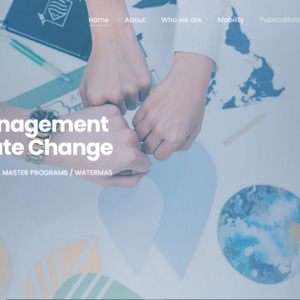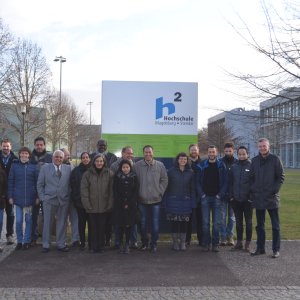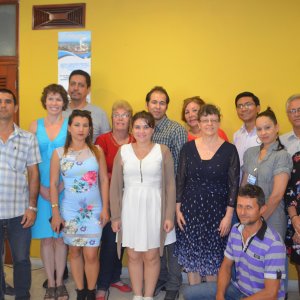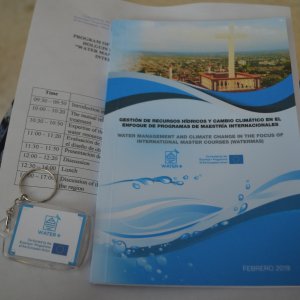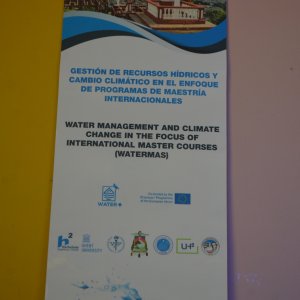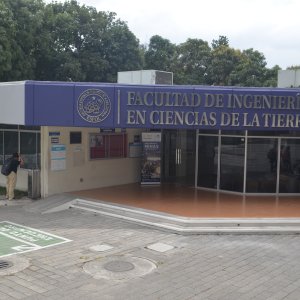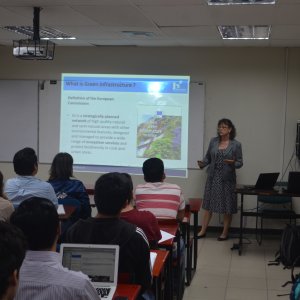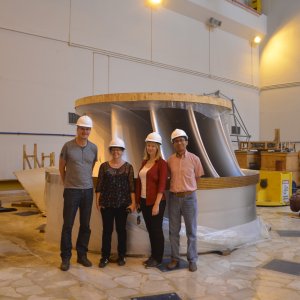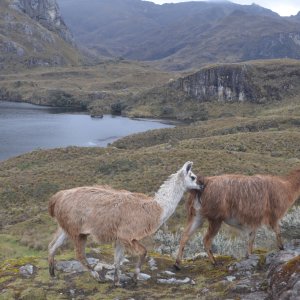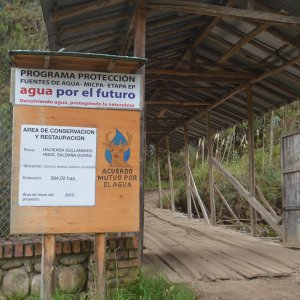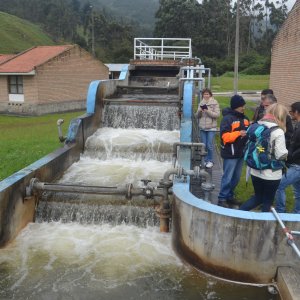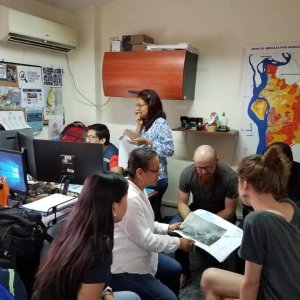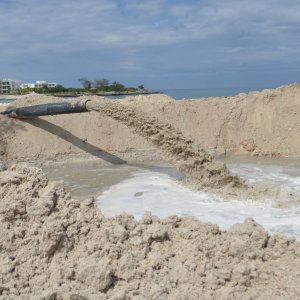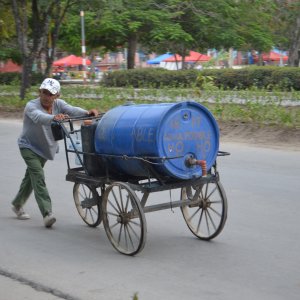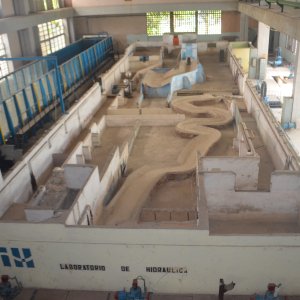Short Description

Many countries in Latin America and the Caribbean lack well-trained professionals for sustainable water management. The existing Master's programmes in the region insufficiently address the connection between local, regional and global aspects of water management. This is particularly problematic given the growing challenges posed by climate change, which requires new competencies in water resource management. The WATERMAS project therefore pursued the following central objectives:
- The development of modern curricula for Master's programmes that convey current scientific and technological knowledge on water management whilst considering climate change
- The improvement of competencies of future leaders in water management, particularly regarding regional challenges such as urbanisation, industrialisation and agricultural intensification
- The establishment of a new standard for scientific exchange between Europe and Latin America through shared educational values and intercultural learning
Implementation was achieved through the development of innovative teaching and learning formats and didactic methodological concepts specifically tailored to the field of "Effects of Climate Change on Water Resource Management". A core aspect was the introduction of modern modelling tools for forward-looking analyses. The intensive exchange of students and teaching staff between the continents facilitated not only knowledge transfer but also the development of intercultural competencies and the improvement of language skills - important additional qualifications for the international job market.
Selected Publications
Reinstorf, F.; Schneider, P.; Rodriguez Tejeda, R.; Santos Roque, L.; Hampel, H.; Vazquez, R.F. (2019). Water Management and Climate Change in the Focus of International Master Programs in Latin America and the Carribbian. In: Leal Filho W., Barbir J., Preziosi R. (eds.) Handbook of Climate Change and Biodiversity. Climate Change Management. Springer, Cham, pp. 1- 23, ISBN: 978-3-319-98680-7, https://doi.org/10.1007/978-3-319-98681-4_1 -> Link to the pdf
Schneider, P.; Reinstorf, F.; Vazquez, R.F. (2019). Theory-Practice Integration and Sustainability, In: W. Leal Filho et al. (eds.), Quality Education, Encyclopedia of the UN Sustainable Development Goals, https://doi.org/10.1007/978-3-319-69902-8_10-1
Lyon, S.W.; Goethals, P.; Schneider, P.; Dominguez, L.; Hampel, H.; Lam, N.; Nolivos, I.; Reinstorf, F.; Rodríguez Tejeda, R.C.; Vázquez, R.F.; Ho, L. (2019). Improving Water Management Education Across the Latin America and Caribbean Region, Water 2019, 11, 2318; doi:10.3390/w11112318 (open access)
Schneider, P.; Dominguez, L.; Alvarez. I.; Borbor, M. (2020) Networks for a Biodiverse Future through Green Infrastructure. In: Leal Filho W., Özuyar P., Azul A., Brandli L., Wall T. (eds) Encyclopedia of the UN Sustainable Development Goals. Industry, Innovation and Infrastructures. Springer, Cham; DOI 10.1007/978-3-319-71059-4_113-1, https://link.springer.com/referenceworkentry/10.1007/978-3-319-71059-4_113-1
Schneider, P.; Pilzecker, C.; Reinstorf, F. (2022). Urban Green Infrastructure for Coping with Climate Extremes in Holguin: Ecological Engineering Solutions in the Cuban Context, Clean – Soil, Air, Water 2022, 2000422, https://doi.org/10.1002/clen.202000422 (open access)
WATERMAS | Project Impressions
Project title
WATERMAS - Water Management and Climate Change in the Focus of International Master Programs
Duration
15.10.2017 - 14.03.2020
Funding
Erasmus+ under the funding line „KA2 – Cooperation for Innovation and the Exchange of good Practices – Capacity Building in the Field of Higher Education“
764.523 €
Lead Partner
Magdeburg-Stendal University of Applied Sciences (Prof. Dr. Frido Reinstorf, Deputy: Prof. Dr. Petra Schneider)
Further Project Partners
- Ghent University (Belgium)
- Stockholm University (Sweden)
- University of Cuenca (Ecuador)
- ESPOL - Escuela Superior Politécnica del Litoral (Guayaquil, Ecuador)
- University of Holguin (Cuba)
- University of Camagüey (Cuba)
